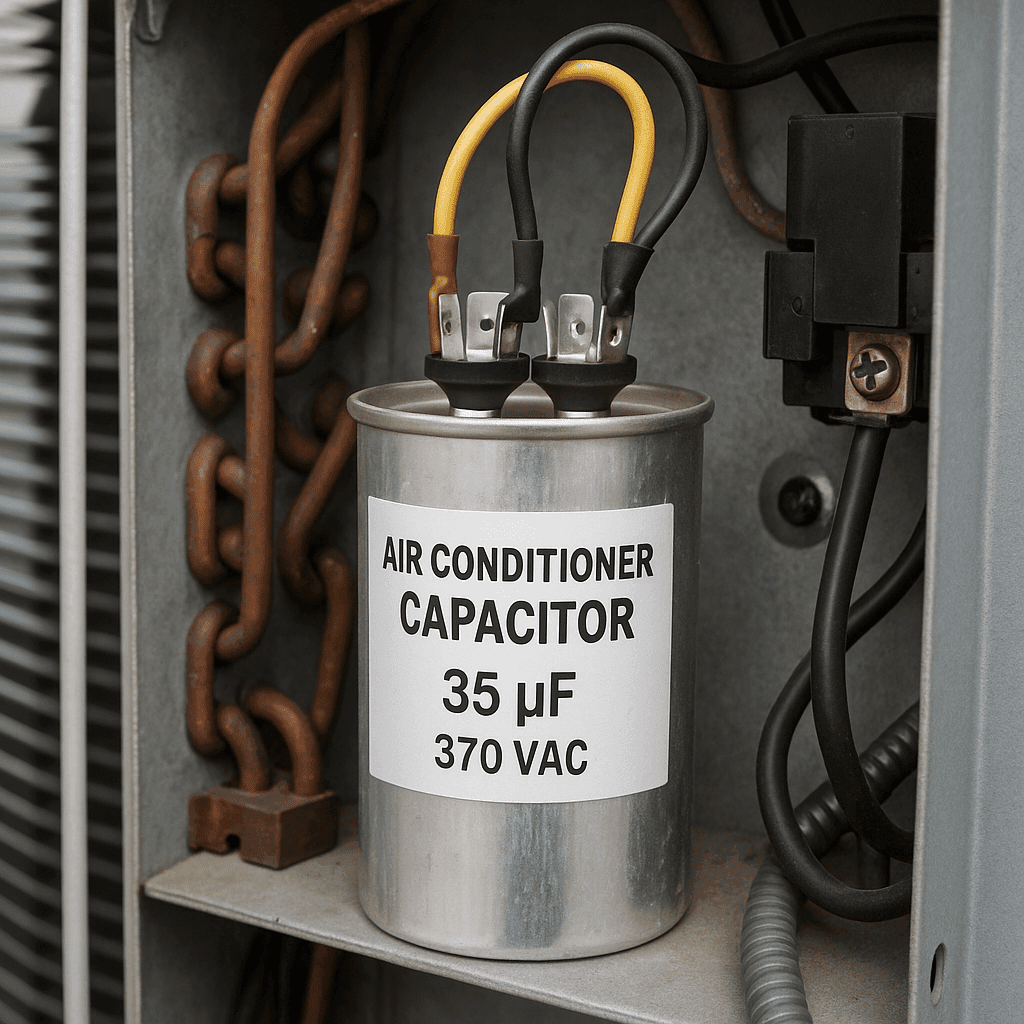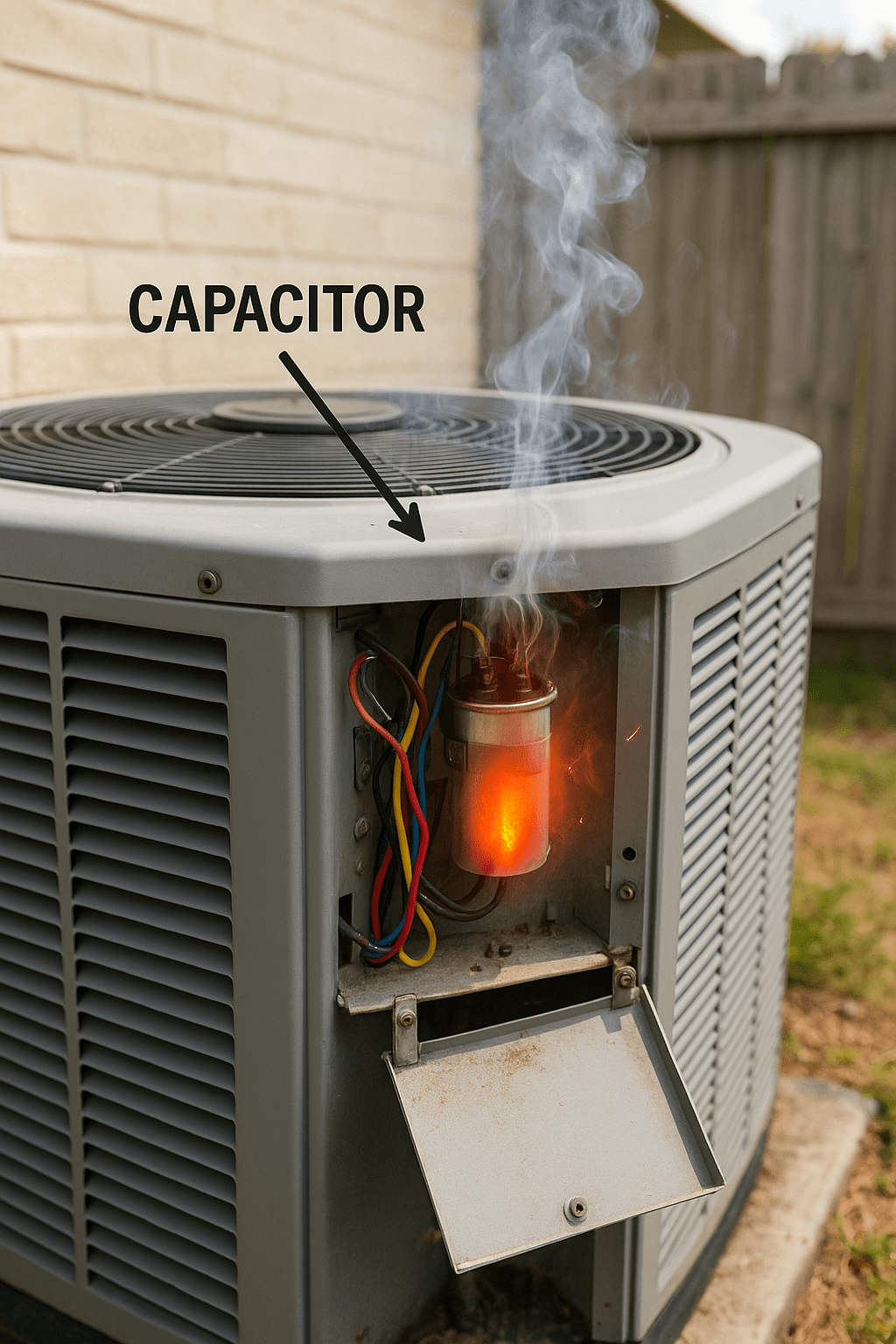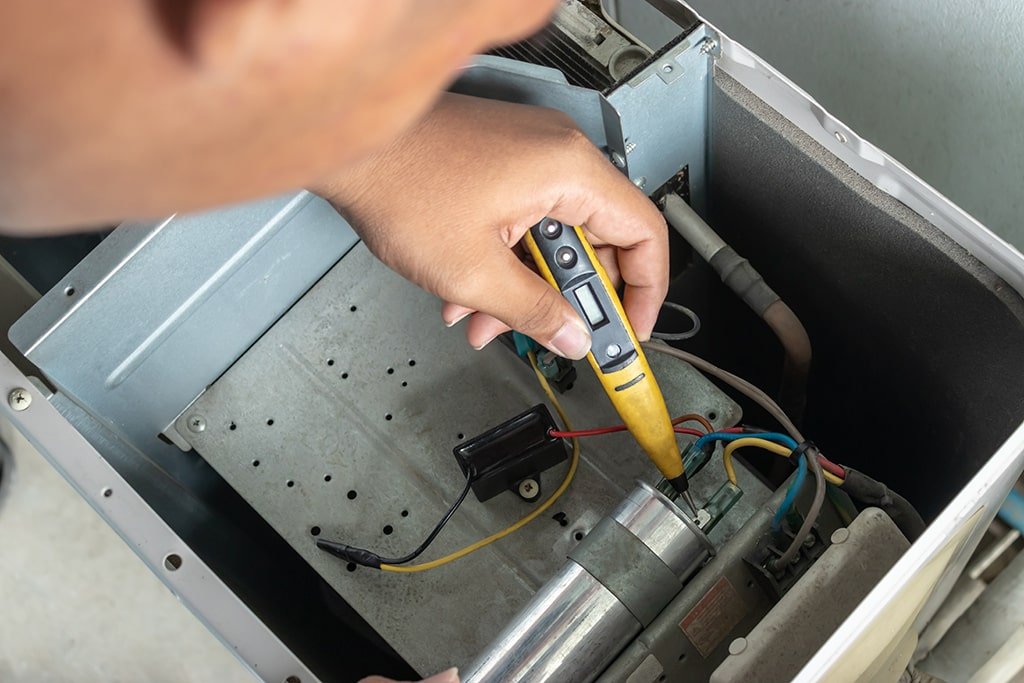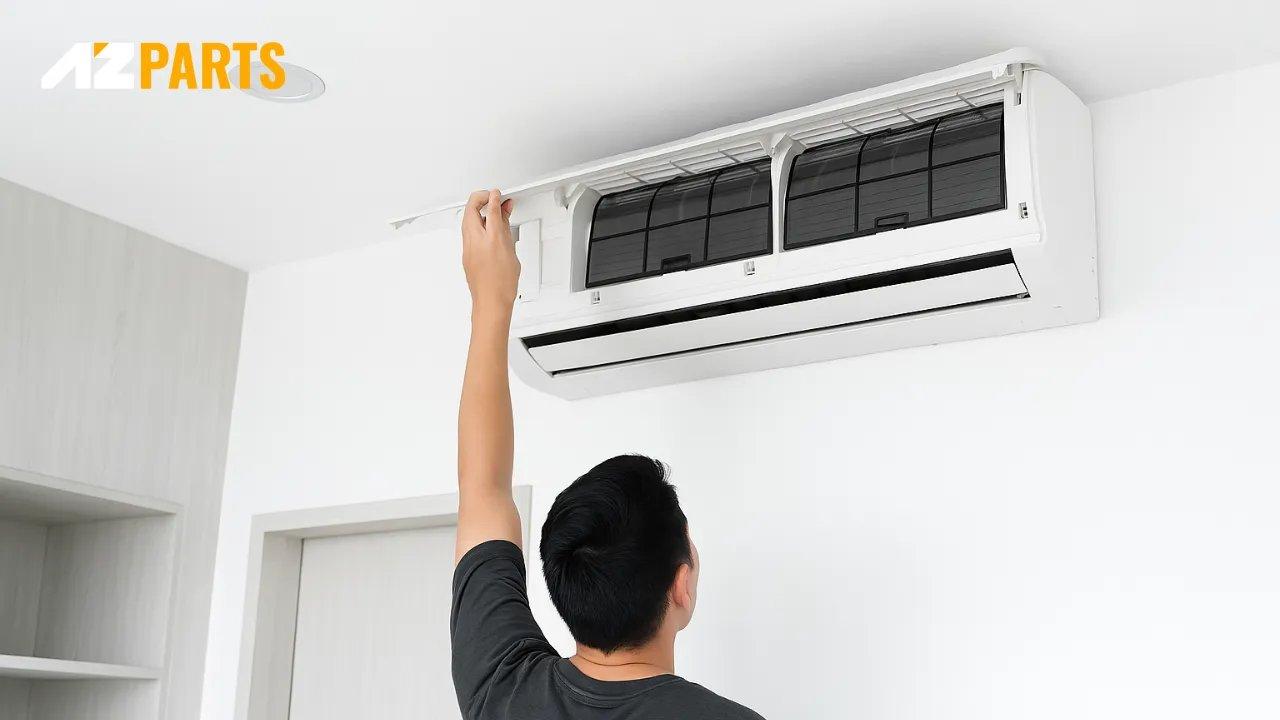Repair help
Why Do AC Capacitors Fail? Common Causes Explained
AZparts Team
Updated on June 18, 2025
6 min read
If your air conditioner suddenly stops working or struggles to start, the capacitor may be the root cause. Understanding why do AC capacitors fail can help you catch early warning signs and avoid unexpected breakdowns. Most failures happen due to issues like overheating, power surges, or simple wear and tear. In this article, let's join AZParts to identify the reasons and warning signs to avoid costly and uncomfortable repairs on the hottest days.

1. What Exactly Does an AC Capacitor Do in Your HVAC System?
An AC capacitor is a vital electrical component that helps your HVAC system function properly. When your air conditioner starts, the capacitor provides the initial surge of energy needed to power the compressor and fan motors. This surge is essential because it allows the motors to overcome inertia and begin operating efficiently. Once the system is running, the capacitor continues to regulate the flow of electricity, ensuring stable performance.
An AC capacitor is a vital electrical component that helps your HVAC system function properly (Source: AZParts)
Understanding what is an AC capacitor reveals how important it is to the cooling process. The capacitor function in AC systems includes both starting and running support for major components. Without a functioning capacitor, the system may struggle to turn on, operate with reduced efficiency, or shut down entirely.
2. Main Reasons Why AC Capacitors Go Bad Over Time
Understanding why AC capacitor fails is crucial for maintaining your cooling system’s performance and preventing sudden breakdowns. Like many common HVAC issues, capacitor problems tend to worsen over time due to a variety of internal and external factors. Let’s explore the primary capacitor malfunction causes every homeowner should be aware of.
2.1. Overheating from Constant Use or Poor Ventilation
Capacitor overheating is a common reason for failure, especially during periods of extended HVAC operation. When your air conditioner runs continuously, often due to extreme temperatures or thermostat issues, it places stress on the capacitor. Poor ventilation around the outdoor unit can trap heat, leading to heat damage to AC components. Over time, this thermal stress weakens the capacitor’s internal structure, resulting in system inefficiency or total failure. These HVAC overuse problems are especially common in older systems or those lacking regular maintenance.

Capacitor overheating is a common reason for failure, especially during periods of extended HVAC operation (Source: AZParts)
2.2. Sudden Power Surges or Voltage Overloads
Unexpected capacitor power surge events can occur during lightning storms or due to electrical grid instability. These surges send excess voltage through your system, overwhelming sensitive components like capacitors. Frequent electrical overload events can shorten the lifespan of your AC unit by damaging its most vulnerable parts.
If your home experiences AC voltage spikes often, your capacitor may degrade prematurely, leading to erratic performance or system shutdown. Installing surge protectors can help prevent this common cause of capacitor failure.

Frequent electrical overload events can shorten the lifespan of your AC unit by damaging its most vulnerable parts (Source: AZParts)
2.3. Natural Wear and Tear or Physical Damage
Even under normal conditions, damaged AC capacitor issues can arise simply due to age, typically between 5 to 10 years. Physical damage may also occur from outdoor exposure, pest intrusion, or accidental impact. As physical wear on capacitors progresses, the unit may begin to show early signs such as delayed starts or intermittent operation. Replacing the new capacitor before it completely fails can help maintain your AC’s reliability and prevent larger mechanical issues.
The capacitors have a limited lifespan, typically from 5 to 10 years (Source: AZParts)
3. How to Tell If Your AC Capacitor Is About to Fail
Recognizing the signs of bad capacitor early can save you from a complete system breakdown during hot weather. Your air conditioner relies on capacitors to deliver the initial jolt of energy needed to start and keep running. When a capacitor begins to fail, it often gives off subtle AC capacitor warning symptoms that are easy to overlook. Understanding these indicators is a key part of capacitor troubleshooting and helps ensure timely replacement before major damage occurs.
Recognizing the signs of bad capacitor early can save you from a complete system breakdown (Source: AZParts)
One of the most common signs is a humming sound coming from the outdoor unit without the fan spinning. This suggests that the motor is trying to start but lacks the needed power. You may also notice warm air blowing from the vents even though the thermostat is set to cooling.
Another warning sign is frequent system cycling, where the unit turns on and off more often than normal. In some cases, the AC may fail to start altogether or take longer than usual to kick in. Any of these symptoms point to a failing capacitor and warrant prompt inspection by a professional technician.
4. Can You Prevent AC Capacitor Failure? Maintenance Tips That Work
Preventing AC capacitor failure is possible with the right approach to system care. Many homeowners overlook the importance of regular upkeep, but small actions can make a big difference. By following proven HVAC maintenance tips, you can prolong AC life and prevent capacitor burnout, avoiding costly repairs and sudden breakdowns during peak summer use.
- You should begin by scheduling routine professional inspections at least once a year. A licensed technician can test the health of your capacitor, check voltage readings, and identify early signs of wear or damage.
- You should also clean and maintain the outdoor unit regularly to keep it well-ventilated and prevent overheating. Homeowners need to remove leaves, dirt, and debris that may block airflow around the unit.
- Then, you also have to change air filters on a consistent schedule to reduce stress on the HVAC system.
- Additionally, you must ensure that your thermostat functions accurately to avoid unnecessary cycling.
When you follow these simple maintenance steps, you help protect your capacitor and improve the overall performance and lifespan of your air conditioning system.
You should begin by scheduling routine professional inspections at least once a year (Source: AZParts)
Knowing why AC capacitors fail gives you the knowledge to better protect your HVAC system. Whether you're dealing with frequent issues or want to be proactive, replacing a faulty capacitor promptly is key. AZParts offers reliable, affordable AC replacement products like capacitors, AC covers, piercing valves and port adapters that match OEM standards. Browse our collection today and keep your cooling system running at its best.
Contact Information:
8 The Green, Ste A, Dover, Delaware 19901-3618, United States
Air conditioner
Further Reading
Further Reading





